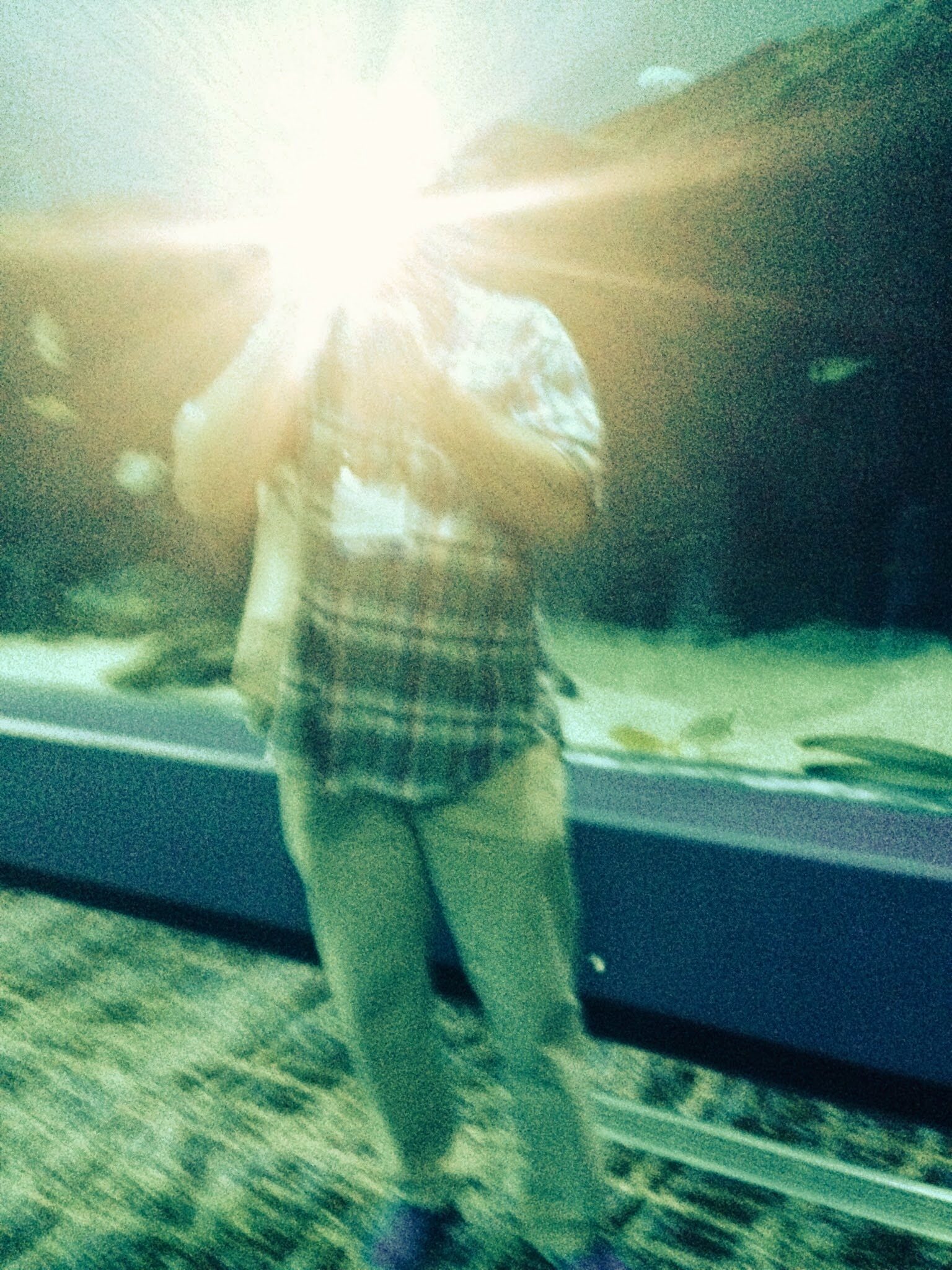John Elder Robison was a discussant for the Autism Social, Legal, and Ethical Research Special Interest Group at the 2014 International Meeting for Autism Research (IMFAR). He ended up taking the group to task, stating that the autism science community is headed for disaster if it does not change course on several factors – and noting for context the larger size of the US autistic community in proportion to other minority groups such as Jewish or Native American communities. Mr. Robison asserted that autistic people need to be the ones providing oversight and governance for autism research. He condemned the use of words like “cure.” He pointed out that researchers’ explicit or implicit efforts to eradicate autistic people is a formula for disaster and needs to stop. And he affirmed that memoirs and narratives written by autistic people are more trustworthy than writing about autism by nonautistics. Many thanks to…
Tag: inclusion
Shannon Des Roches Rosa www.squidalicious.com By now you’ve probably heard of the Happy Birthday Colin effort, in which a socially isolated (though not autistic) boy’s mom created a Facebook page to cheer him up for his eleventh birthday — and the page went viral, with nearly 2 million Likes as of this writing. Colin’s mom writes: “I am Colin’s mom, I created this page for my amazing, wonderful, challenging son who is about to turn 11 on March 9th. Because of Colin’s disabilities, social skills are not easy for him, and he often acts out in school, and the other kids don’t like him. So when I asked him if he wanted a party for his birthday, he said there wasn’t a point because he has no friends. He eats lunch alone in the office everyday because no one will let him sit with them, and rather than force someone…
Lisa Friedman jewishspecialneeds.blogspot.com We want April — Autism Acceptance Month — to matter, to help further acceptance and understanding of autistic experiences, happiness, and rights for autistic people of all ages and abilities. We will be publishing Autism Acceptance posts and pictures all month long. -TPGA Editors In a recent post, Inclusion is NOT a Program, I reflected on the notion that while all of our synagogue’s programs, classrooms, and worship opportunities should be inclusive, inclusion is not a program. It’s not a one-time workshop or training session. Inclusion is an attitude, it is something that is just naturally woven into the fabric of what we do. At least it should be. Today I was reminded of something significant that I have learned from one of my mentors in the world of Jewish Disability Awareness and Inclusion. Rabbi Lynne Landsberg, Senior Advisor on Disability Issues at the Religious Action Center…
Katharine Kroeber Wiley www.meowspawprints.co Imagine a girl sitting in the corner of the gym during PE, her hands over her ears, maybe rocking or making a keening noise: she’s trying to tune out the intolerable chaos of running bodies, echoing noises, glaring lights. She gets blamed for disturbing the other children, and her parents get an angry phone call. Physical exercise is a great thing. It can help autistic kids organize their thoughts, attend to their work, reduce stress. Particularly for autistic kids who are good athletes, these activities can boost confidence and serve as a social ice-breakers. Some manage gym classes without any accommodations, some need a few adaptations, some thrive with specific Adaptive Sports Programs. But many parents, or budding autistic self-advocates, are unaware of the wide range of options they can request, get turned down flat, and don’t know how to fight back. So far too many…
Matt Carey Imagine the most magical theater experience you’ve ever had. Imagine watching a beautiful girl stand up in the audience and start swaying to the music, only to move to the aisles where she pulled other kids out of their seats to dance with her. Imagine kids getting up and moving around. Some banging on empty seats. Some leaving for a while only to be welcomed to come back in when they are ready. Imagine audience members’ lights glowing with the light of some technological device. Only instead of it being someone trying to surreptitiously read his email on a smartphone, it’s a nonverbal kid using an AAC device to type out, “more music, less talking!” Imagine people leaving at the intermission, not because they don’t like the show, but because they loved it and half a show was plenty. Imagine most people staying, even though it was a…
How the right accommodations helped one autistic student instantly go “from being a misunderstood, odd child with behavior problems to being a supported autistic child.”
Estée Klar www.esteeklar.com My son Adam has been in “therapy” since he was 20 months of age. I have reams of notes and binders used to create his programs, track his progress, develop his plans with other professionals who use ABA, RDI, Floortime and other methods. I have a decade of experience with autism education and various therapies, many of the approaches dubious. I’ve witnessed improvements in the field, and I continue to have a watchful eye. I predicted Adam would be forced into an ABA program, and here we are, in an segregated school for autistic children. Not that it’s a “bad” thing. I am actually grateful to be in a system that is set up more for him rather than completely disregards him. Adam, for now, is happy there and he is learning, but it’s a fact that it’s still exclusion which we mitigate with other inclusive programs.…
Meg Evans megevans.com It’s June again — that time of year when we wake early to birdsong and a bright sunrise, our days are long and pleasant, and summer camps are getting underway for school-age children. For parents who have an autistic child, a major consideration in choosing a camp is how well it can meet the child’s needs. Many families choose an inclusive camp, where children with and without disabilities participate equally and often are paired as buddies to encourage them to spend time together and develop friendships. The games and activities in such programs generally are cooperative rather than competitive, so that all of the campers can have fun regardless of their skill levels, and no kids are left sitting on the sidelines. Inclusive camps often are promoted as having educational value for autistic children, in that they provide an opportunity to interact with non-autistic peers and develop…
Shannon Des Roches Rosa www.squidalicious.com Courage is what it takes to stand up and speak; courage is also what it takes to sit down and listen. –Winston Churchill You’d think we parents of kids with special needs — righteous avengers that we so often are — would be extra-invested in listening to the self-advocates who share our children’s experiences, who in many cases used to be our children. You’d think someone like me, who truly believes behavior is communication, would take more time to understand why a self-advocate would criticize something I’d written, would ask for more information before reacting, would understand that a self-advocate can both be articulate and need communication accommodation. You’d think that, knowing how many times even well-meaning people have dismissed my son’s needs or spoken to him as though he was an obedient puppy, I’d understand how self-advocates might have very little patience for parents…
Jean Winegardner www.stimeyland.com Photo courtesy of the author I am always apprehensive about parent-teacher conferences. Nothing bad ever happens. Sam has never gotten anything but glowing reviews. Quinn is Quinn, which is wonderful and charming. And Jack? Well, I always hear that he is very smart, that he is “making sufficient progress to meet goal(s).” In fact, I never really hear anything that surprises me, but I still feel angst walking in to those meetings — at least to Jack’s. Today was different. I’ve noticed Jack struggling more and more this year. I’ve started to wonder if an inclusion classroom is the best setting for him. (That’s a whole other set of angsty feelings.) I’ve started to see his autism-specific deficits bumping up against the curriculum. But here’s the thing. Jack’s teacher sees this, recognizes it for what it is, and gave him the appropriate marks to reflect it. She…




